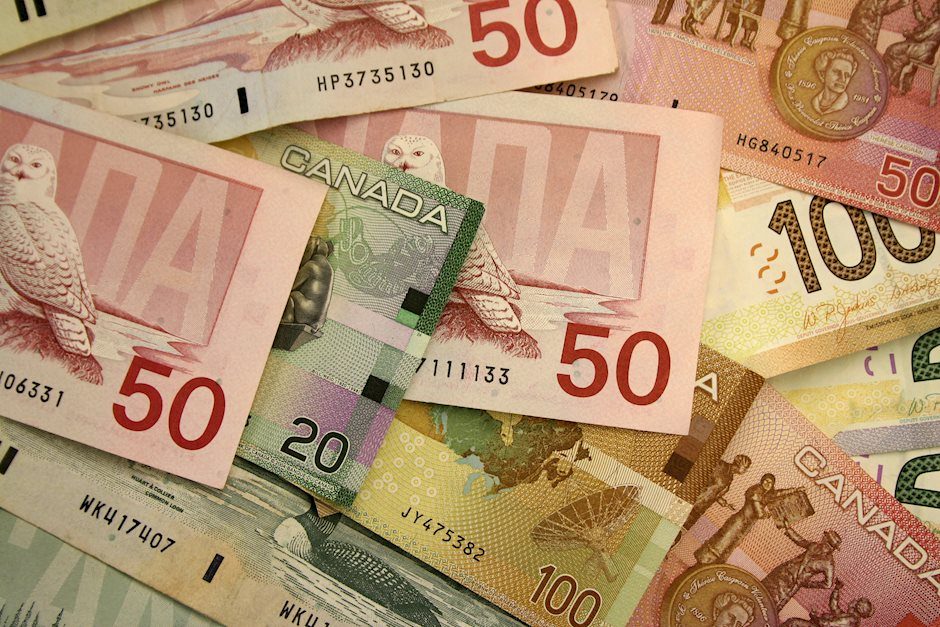USD/CAD extends its losing streak amid firm Oil prices, US Inflation in focus
- USD/CAD extends its losing spree as firm Oil prices continue to strengthen the Canadian Dollar.
- The appeal of risk-sensitive assets improves as fears of US recession have waned.
- Investors await the US Inflation data for July for fresh guidance on interest rates.

The USD/CAD pair continues its losing spell for the seventh trading session on Monday. The Loonie asset faces severe selling pressure due to sheer strength in global Oil prices on deepening supply issues.
West Texas Intermediate (WTI), futures on NYMEX, rose by more than 5% in last four trading sessions due to worsening geopolitical tensions and a temporary shutdown of Libya's largest oil field, Sharara amid civil unrest due to rising fuel prices, poor economic opportunity and unemployment.
Conflicts in the Middle East between Iran and Israel are expected to widen further as the latter prepares in anticipation of Iran’s retaliation for the assassination of the Hamas leader by an Israeli air strike in Tehran.
It is worth noting that Canada is the leading exporter of Oil to the United States (US) and higher Oil prices strengthen the Canadian Dollar (CAD).
Meanwhile, the market sentiment has improved as fears of a potential US recession have waned. S&P 500 futures have posted decent gains in European trading hours. The US Dollar Index (DXY), which tracks the Greenback’s value against six major currencies, trades sideways above 103.00.
This week, the US Dollar will be guided by the US Consumer Price Index (CPI) data for July, which will be published on Wednesday. The US CPI report is expected to that annual headline and core inflation has decelerated for the fourth month in a row. This will boost expectations of a big interest-rate cut announcement by the Federal Reserve (Fed).
Canadian Dollar FAQs
The key factors driving the Canadian Dollar (CAD) are the level of interest rates set by the Bank of Canada (BoC), the price of Oil, Canada’s largest export, the health of its economy, inflation and the Trade Balance, which is the difference between the value of Canada’s exports versus its imports. Other factors include market sentiment – whether investors are taking on more risky assets (risk-on) or seeking safe-havens (risk-off) – with risk-on being CAD-positive. As its largest trading partner, the health of the US economy is also a key factor influencing the Canadian Dollar.
The Bank of Canada (BoC) has a significant influence on the Canadian Dollar by setting the level of interest rates that banks can lend to one another. This influences the level of interest rates for everyone. The main goal of the BoC is to maintain inflation at 1-3% by adjusting interest rates up or down. Relatively higher interest rates tend to be positive for the CAD. The Bank of Canada can also use quantitative easing and tightening to influence credit conditions, with the former CAD-negative and the latter CAD-positive.
The price of Oil is a key factor impacting the value of the Canadian Dollar. Petroleum is Canada’s biggest export, so Oil price tends to have an immediate impact on the CAD value. Generally, if Oil price rises CAD also goes up, as aggregate demand for the currency increases. The opposite is the case if the price of Oil falls. Higher Oil prices also tend to result in a greater likelihood of a positive Trade Balance, which is also supportive of the CAD.
While inflation had always traditionally been thought of as a negative factor for a currency since it lowers the value of money, the opposite has actually been the case in modern times with the relaxation of cross-border capital controls. Higher inflation tends to lead central banks to put up interest rates which attracts more capital inflows from global investors seeking a lucrative place to keep their money. This increases demand for the local currency, which in Canada’s case is the Canadian Dollar.
Macroeconomic data releases gauge the health of the economy and can have an impact on the Canadian Dollar. Indicators such as GDP, Manufacturing and Services PMIs, employment, and consumer sentiment surveys can all influence the direction of the CAD. A strong economy is good for the Canadian Dollar. Not only does it attract more foreign investment but it may encourage the Bank of Canada to put up interest rates, leading to a stronger currency. If economic data is weak, however, the CAD is likely to fall.
Author

Sagar Dua
FXStreet
Sagar Dua is associated with the financial markets from his college days. Along with pursuing post-graduation in Commerce in 2014, he started his markets training with chart analysis.

















